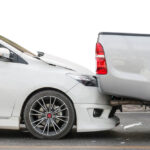Lane Splitting with Motorcycles
Whether you’re a new biker or you’ve been hitting the road on your motorcycle for decades, you’re likely no stranger to lane splitting. Lane splitting involves riding between two lanes of traffic moving the same direction. It’s also used to refer to lane filtering, which occurs when you ride between two lanes of traffic that are stopped.
Everyone has their own opinion on lane splitting and lane filtering, but before you use this to save time or shorten your commute, know what the laws say and what you are risking.
If you have been injured in a motorcycle accident, you are facing an uphill battle with the insurance company. You don’t have to do it alone. Call Reeves & Mestayer at 228-374-5151 to schedule a consultation now.
Differs from State to State
Each state has the right to legislate lane splitting. Mississippi, like many other states, does not have an official stance on lane splitting. This means that they have not explicitly said it is legal, but they have also not passed legislation that makes it clearly illegal.
What does this mean for you? It means that if you choose to lane split in Mississippi, anything could happen. A police officer could see it and ignore it, or they could pull you over and ticket you for improper use of lanes or reckless driving. It all depends on the attitude of the officer pulling you over and local thoughts on lane splitting.
Stagnant Legislature
A bill has been sitting in Mississippi legislation since 2016. Though nothing has happened with it since it was introduced, that could change at any time. The bill, HB 854, would make lane splitting legal only in certain circumstances.
Lane splitting would be permitted when traffic is moving at 30 MPH or less, and the motorcyclist would only be able to travel at a speed of 10 MPH higher than the speed of traffic. After passing congested traffic, the motorcyclist would have to move into a regular lane of traffic. This law would also make it legal for other vehicles to impede motorcyclists who are lane splitting safely.
Since this bill has not passed, it is not law and should not be used as a defense for lane splitting.
Weigh Your Options and Consider the Risks
What you decide to do is entirely up to your own judgment and which risks you are willing to take. For a long time, lane splitting has been criticized as incredibly dangerous. More recent research indicates that lane splitting may actually be safer than staying in stagnant traffic, as it allows motorcyclists to move out of the traffic jam and lowers their risk of getting involved in an accident.
Note, though, that most drivers don’t know this. Most still believe that lane splitting is dangerous and illegal, and as such, they may intentionally block those who are lane splitting or even put them in danger. Consider whether or not this is a risk that is worth taking.
Additionally, even though lane splitting isn’t technically illegal, you could still end up in the path of a police officer who is prejudiced against bikers and will waste no time pulling you over and writing you a ticket.
Finally, consider what will happen if you get involved in an accident while lane splitting. Maybe a car hits you while scooting over to try to keep you from traveling on the white line. In this case, it’s clearly their fault for trying to impede your travel and intentionally put you in danger. Regardless, you may have a hard time getting compensation for your damaged motorcycle and your medical bills.
Much of the legal system is still heavily prejudiced against bikers, and you may end up being blamed for the accident and denied compensation. If this occurs, it is absolutely crucial that you hire an attorney to fight for your rights and the compensation you deserve.
Contact Us for Help With Your Motorcycle Accident Case
As an injured biker, you may have to combat prejudice and stereotypes while trying to get compensated for damage caused by another party. You need a skilled attorney who is ready to fight aggressively on your behalf. Set up a consultation with Reeves & Mestayer now by calling us at 228-374-5151 or contacting us online.







